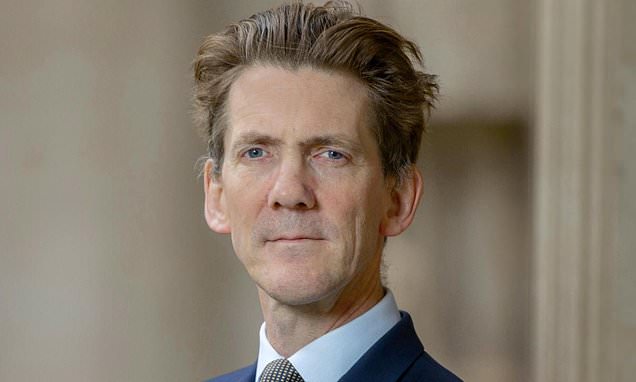The Reserve Bank of will not be influenced by recent rate cuts abroad, freshly appointed deputy governor Andrew Hausen has signalled, after Canadian and European central bankers lowered interest rates this week.
In his first public remarks since his appointment to the position in November, Mr Hauser, who was formerly a senior official at Bank of England, said while other central banks had moved to cut rates earlier, , like other economies, had faced similar struggles in taming inflationary pressures.
‘We all have the same fundamental challenge, which is that inflation has been sticky on the way down, in particular services prices inflation,’ Mr Hauser said.
The Bank of Canada on Wednesday became the first central bank in the Group of Seven to provide borrowers interest rate relief, lowering its overnight rate to 4.75 per cent from 5 per cent after headline inflation fell to 2.7 per cent in April.
‘In Canada, the case is … fairly straightforward,’ Mr Hauser said.
Freshly appointed Reserve Bank deputy governor Andrew Hausen, said will not be influenced by recent rate cuts abroad in Canada and the UK
‘Their interest rates were higher than ours. Their inflation rate is lower than ours, and their unemployment rate has picked up quite a bit more substantially than ours.
‘I think if you took those data out of Canada and you plugged them into the n context, you might well see a different policy stance.’
On Thursday, the European Central Bank followed suit with a rate cut of its own, lowering its key interest rate by 25 basis points to 3.75 per cent, even as recent economic data suggested the eurozone was facing a similar scenario to in the form of sticky inflationary prices.
But Mr Hauser said there was no guarantee that the ECB would continue cutting rates.
‘When I talk as I do to some of the people on the ECB board, they’re not all sure where rates are going next,’ he said.
‘So they’ve been keen, I think, to start the rate cutting cycle to show that they’re independent of the US.
‘But whether that goes a lot further and where it goes from here I’m not so sure.’
Indeed, Europe’s measure of underlying inflation, which strips out more volatile food and energy prices, re-accelerated last month to 2.9 per cent, up from 2.7 per cent in April.
The RBA is expected to be one of the last central banks to lower interest rates, with money markets not pricing in an easing of monetary policy until May 2025
Investors are closely watching for widening dissimilarities between the world’s major central banks, which are a major driver in movements across equity and currency markets.
Traders are betting the divergence will be limited so far.
While the ECB and the BOC have already moved to cut rates, the BOE and the US Federal Reserve are each expected to also ease monetary policy.
Locally, however, the RBA is expected to be one of the last central banks to lower interest rates, with money markets not pricing in an easing of monetary policy until May 2025.
In , underlying inflation remains elevated than its international peers. In April, monthly inflation excluding volatile items and holiday travel rose to 4.1 per cent, up from 4 per cent in March.
Fresh data released earlier this week showed the RBA’s aggressive run of rate hike in the past two years has slowed economic growth to a near standstill in , falling calls from some quarters that governor Michele Bullock and the RBA board should cut rates earlier than anticipated to avoid pushing the economy into a recession.
GDP figures released on Wednesday showed the economy grew by an anaemic 0.1 per cent in the March quarter, a reading which brought annual growth to just 1.1 per cent – its weakest annual result since the early 1990s recession outside the pandemic.
